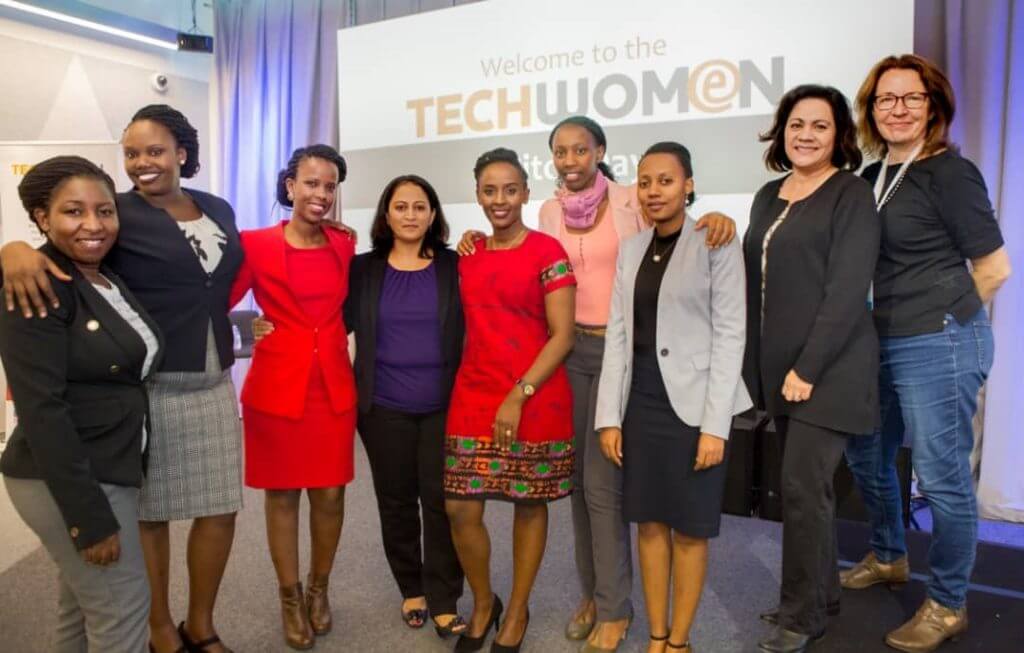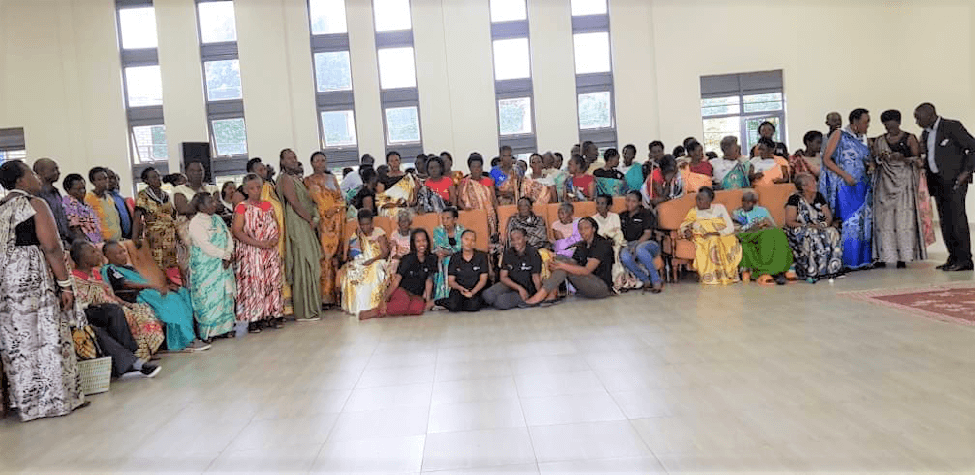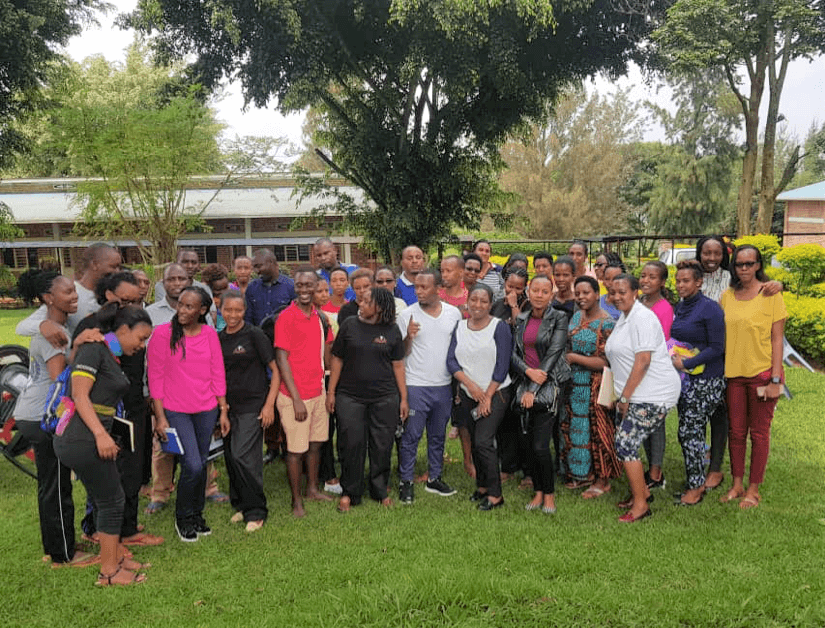Guest post by Vanny Nicole Katabarwa, Pascale Mugwaneza, Christa Munezero, Noella Nibakuze, Solange Uwera and Lucie Uwizeye, 2018 fellows of Rwanda
Editor’s note: The 2018 fellows of Rwanda were one of five country cohorts to receive a $3,000 seed grant to support the implementation of their action plan that was developed during the 2018 TechWomen program. In addition to mentorship and cultural activities, TechWomen participants collaboratively work to develop an action plan to address a socioeconomic issue in their community alongside Impact Coaches.

Team Rwanda after pitching their impact project to judges in October 2018. From left to right: Lucie Uwizeye, Pascale Mugwaneza, Noella Nibakuze, Impact Coach Shachi Patel, Vanny Nicole Katabarwa, Solange Uwera, Christa Munezero, Impact Coach Lisa Ramirez and Impact Coach Jill Von Berg.
Being among the winners of the TechWomen 2018 Pitch Day was one thing; making our project a reality was another thing that our group reflected on throughout the journey from Washington, D.C. back to Rwanda. When we reached home, the good news about winning a TechWomen seed grant had reached our workplaces, tweets were being shared among TechWomen alumnae groups and everyone promised to support us in making our project a reality. The encouragement we received made us confidently believe that we were going to make it happen. Two weeks after returning from D.C., we held our very first meeting for Healing Together, our initiative that aims to set up trusted and safe environments where women survivors of the Genocide against the Tutsi can access counseling services. The main agenda item was to identify our stakeholders and set strategies on ways to collaborate. We listed the stakeholders with whom we planned to engage, and we ended up narrowing down the list to two main stakeholders: AVEGA (Association of the Widows of Genocide) and CNLG (National Commission for the Fight Against the Genocide).
After selecting our primary partners and reflecting on our main project objective, we realized that the first step was to increase the network of counselors available to women survivors. When we approached AVEGA and presented our proposal, it so much resonated with their plans. As such, we mutually agreed that to scale up the network, we should provide a series of trainings for counselors who can then go on to train others. In partnership with AVEGA, Healing Together organized a one-day training that gathered a diverse group of professionals: 40 counselors from 28 districts, four counselors from AVEGA’s health centers and eight counselors and caretakers from Impinganzima Hostel, a facility that houses elderly and widowed genocide survivors.
On January 13, the counselors gathered in the Rwamagana District of Rwanda and had an opportunity to be trained by a well-known Rwandan therapist, Mr. Chaste Uwihoreye. The training, which emphasized approaches used in group counseling and group therapy, allowed us to gather insights on how to make our project more impactful. We were thrilled that our very first event was successful, and we are very committed to offer our contribution for capacity building and any other support that can increase the network of counselors for genocide survivors in our country.

Healing Together visited Impinganzima Hostel, meeting with elderly survivors of the Genocide against the Tutsi and seeing trained counselors in the field.
Our next step was to organize a visit to the counselors in their work environment and find out how many women have been helped and positively impacted. This May, we visited a group of elderly genocide survivors, known locally as “Intwaza,” who are living at the Impinganzima Hostel. Our visit coincided with the 25th Commemoration of the 1994 Genocide against Tutsi, and we joined Intwaza on the day it was commemorated. We were very happy to meet the familiar faces of some of the counselors who received training in January, and the counselors of AVEGA were thrilled to see our continued commitment to partnership. Healing Together spent the day with the women survivors; they were very happy to spend time with the younger generation and encouraged us to work hard for peace in our country and never allow such atrocities to happen again.
Looking ahead, our plan is to scale up activities and seek out resources in order to continue our mission: training and supporting counselors so they can reach more women and have a bigger impact.




Speak Your Mind